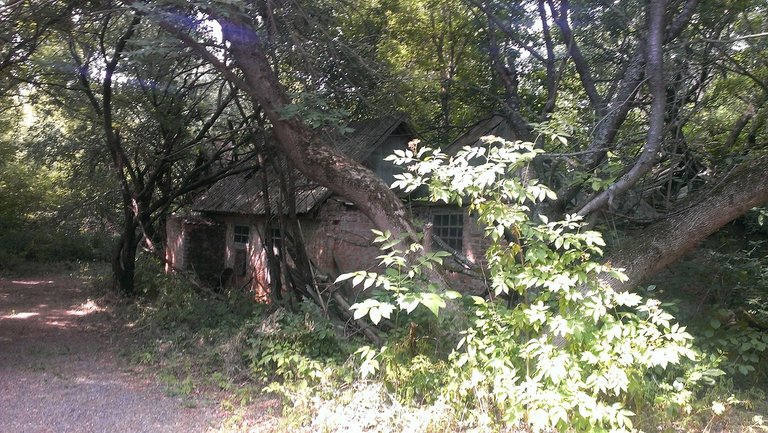
Our trip continues, so come on and hop on the bus! In Part I we set off from Kiev Central Bus Station and entered the outer layer of "The Zone". Our first stop was the abandoned village of Zalisya and we met a friendly old lady who is still holding out in her home 30 years after the nuclear disaster. Now, we are boarding our bus again at a mysterious old stop ...
Nothing is what it seems
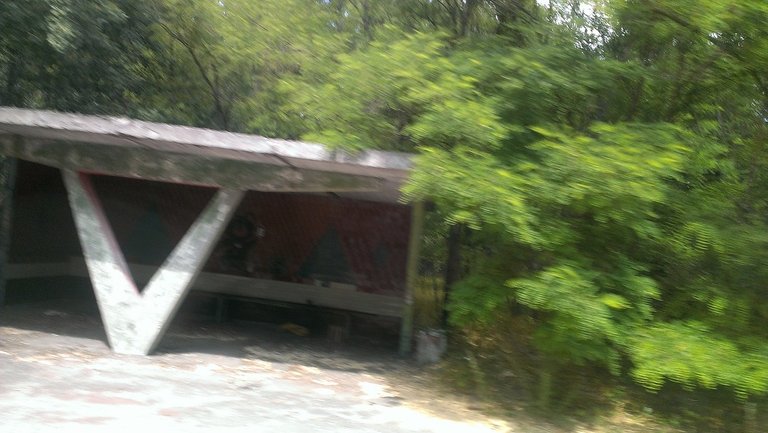
If you look to the left of this odd little bus stop, you see a small strip of asphalted road going deep into the woods, lined by two curtains of giant pine trees. What is this place? Do you see the bear on the wall of the bus stop? It is the official mascot of the 1980 Moscow Summer Olympics, known as "Olympiyski Mishka" among Soviet citizens of its time. The cheerful little bear looks so out of place in this landscape of tristesse and abandonement ...
But it gets even more intriguing. This is not just a bus stop, it is a cover for something ... big. The KGB used to tell local people that this is a stop for Young Pioneers and that the road that goes deep into the woods leads to a Pioneer Summer Camp. Now that there are no more KGB minders around, let's find out where it truly leads us!
A first glimpse
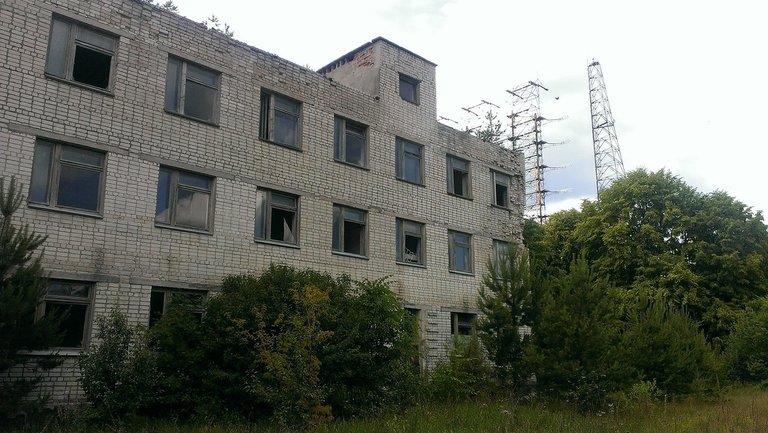
Once we have reached the end of this secretive road, it is really hard NOT to see what they were trying to hide here. We have reached an old military base and wherever you look, it is nearly impossible to get this gigantic array of steel antennae out of your sight, but let's not rush things.
Before entering the area, we pass a small checkpoint.

The inscription on the window says "Make sure that you have your own pass" and some 30 years ago, a Soviet soldier would have sternly looked out of this window, checked your documents and only then let you through to one of the most expensive and secretive military installations of the Soviet Union. Luckily, there was no soldier there, so we didn't need any documents.
There is plenty of abandoned treasure collecting dust (and radiation) on this military base.
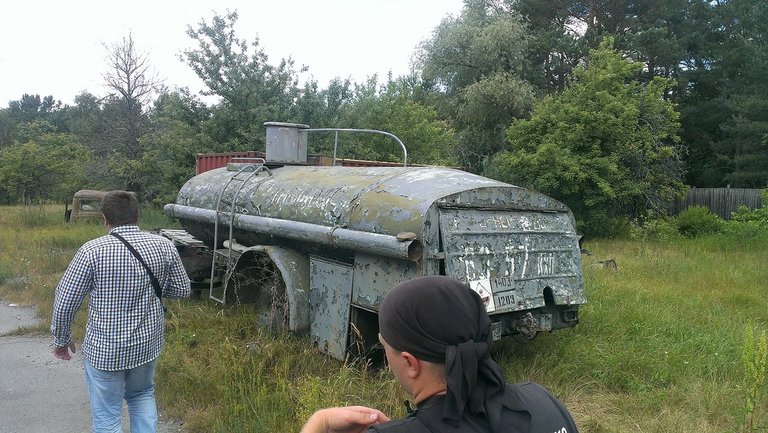
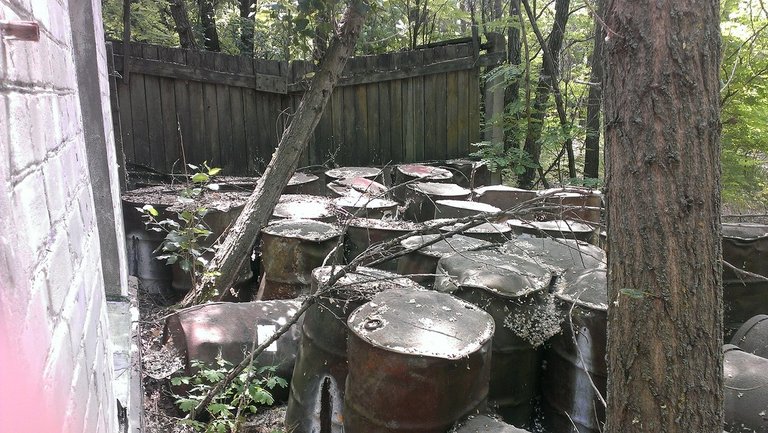
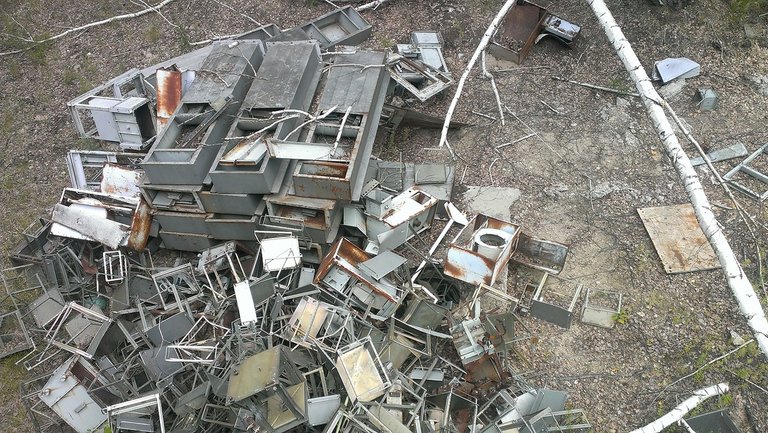
Soviet Super Weapons
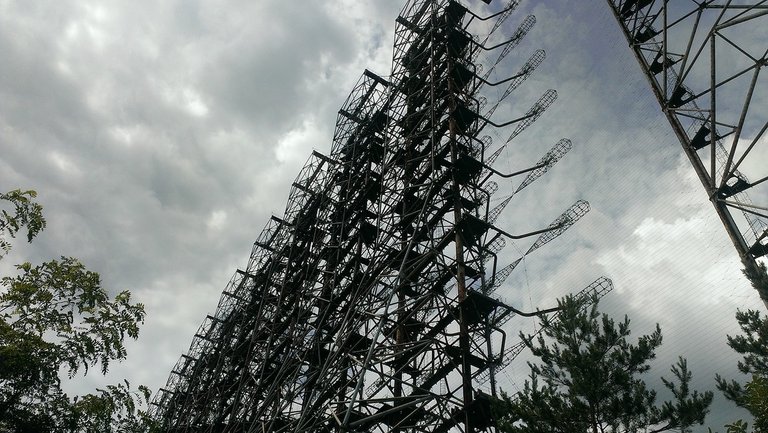
Finally, we are getting up close to the Duga-1 Radar Array, a megalomanic multi-million dollar Cold War installation and a scientific gem of its time, I recommend you to read the linked Wikipedia article because I can't possibly fit all interesting facts about Duga-1 in this artice – and there are a lot!
What you should know is that it was designed to track down American ICBMs the moment they were launched from their silos (if the U.S. ever decided to nuke the USSR, that is), so this radar (and there were two others like it) was extremely powerful. This one was abandoned after the Chernobyl disaster and the following breakdown of the Soviet Union. Now it remains one of the most impressive monuments of the Cold War era.
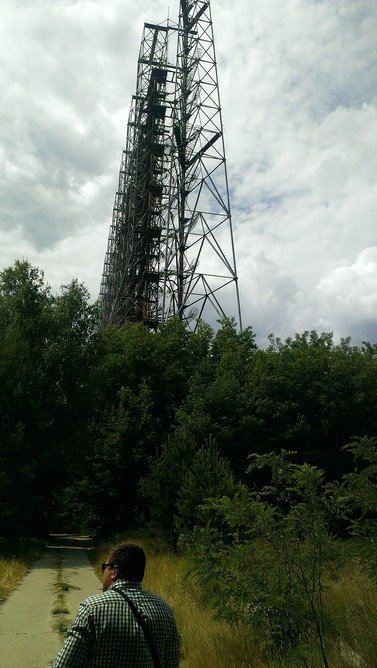
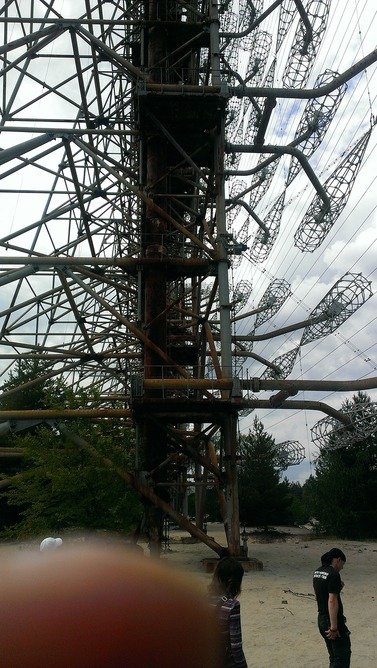
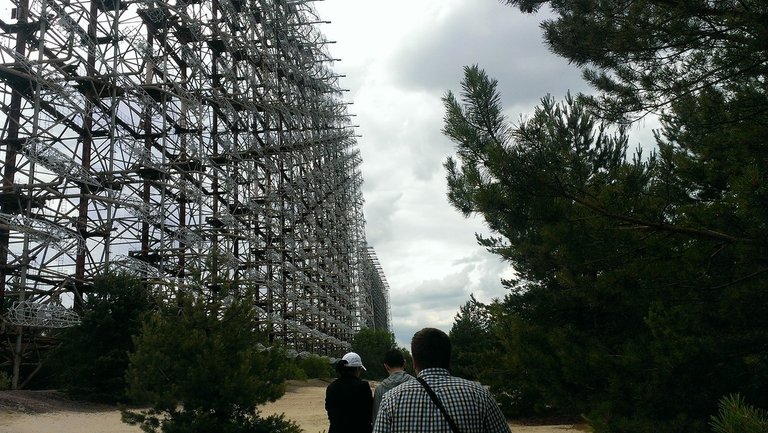
Control Room of Doom
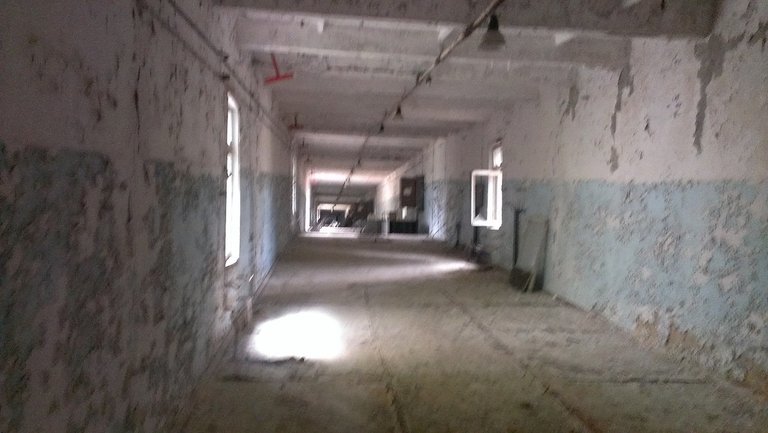
Before we leave Duga-1, let us take a stroll through its control room and barracks. Thankfully, Duga-1 never spotted an actual nuclear missile launch, but if it would have, the guys in this building would have known first and would have to warn the rest of the military forces in a matter of seconds. We have entered the first floor of the building.
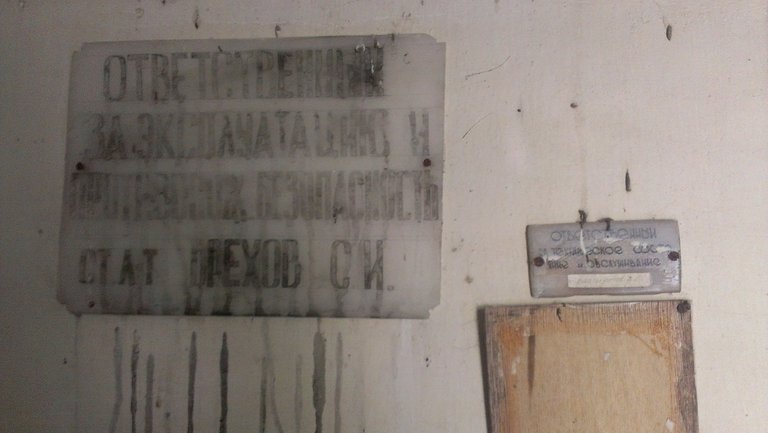
We walk along a couple of offices with plates on which you can still read the name of the last person who worked here. This is a security office that was under a man called Orekhov S. I.
On the second floor we find a room with plenty of documents and posters lying around on the ground.
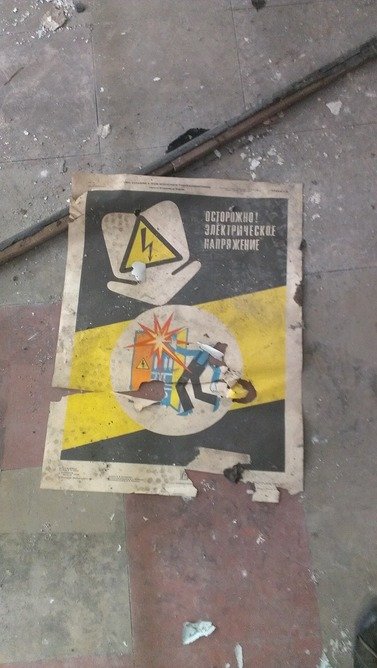
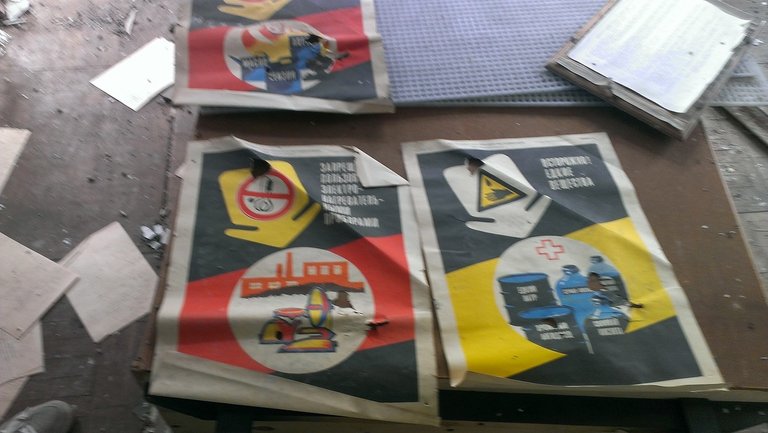
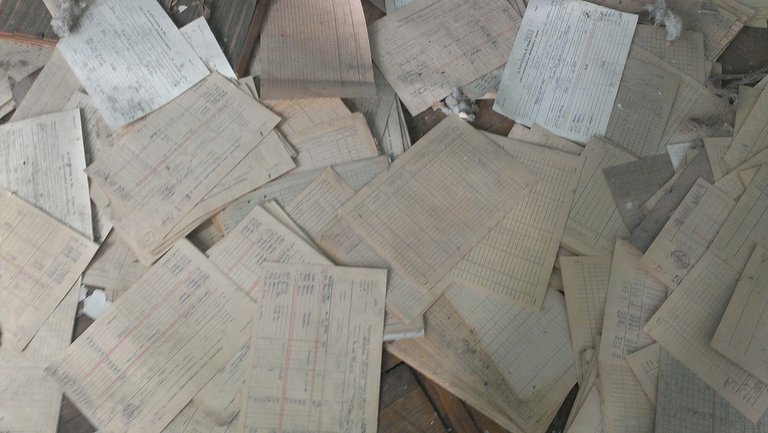
I can tell you that they are not TOP SECRET, but mostly contain instructions for the people who worked at the station.
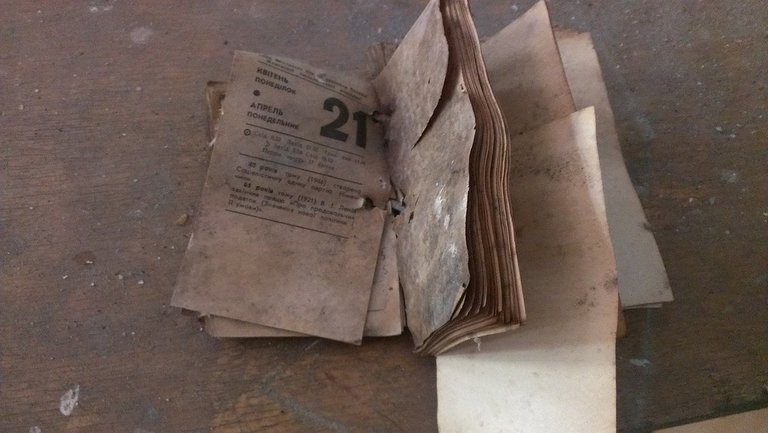
The page of this calendar shows April 21st, 5 days before the accident at the Chernobyl NPP.
After inspecting all of the side rooms and offices, we finally enter the control room of Duga-1. You can see that all the switches and computational parts have been removed before the station was decomissioned, but the decorations, posters and scientific diagrams on the walls are still there. You can still imagine what this room would have looked like 30 years ago and how it was abandoned in a frenzy once the soldiers and scientists were informed about what happened in Chernobyl. Take a look around, but don't take too long, we are departing soon.
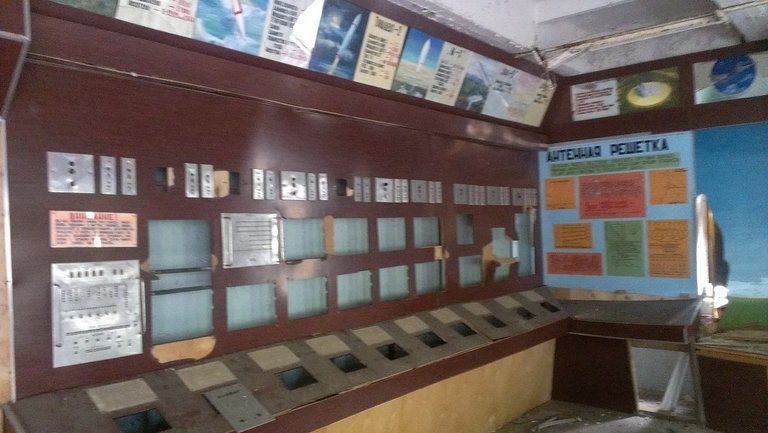
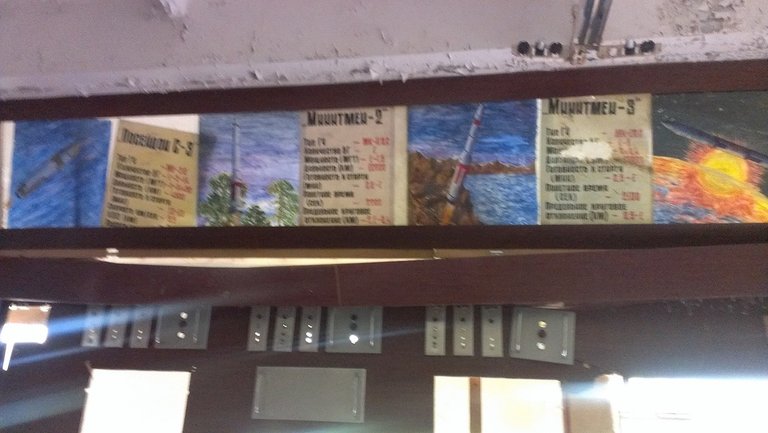
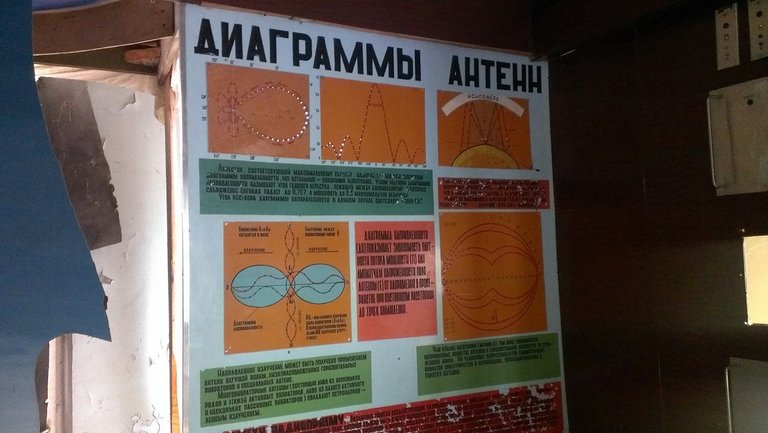
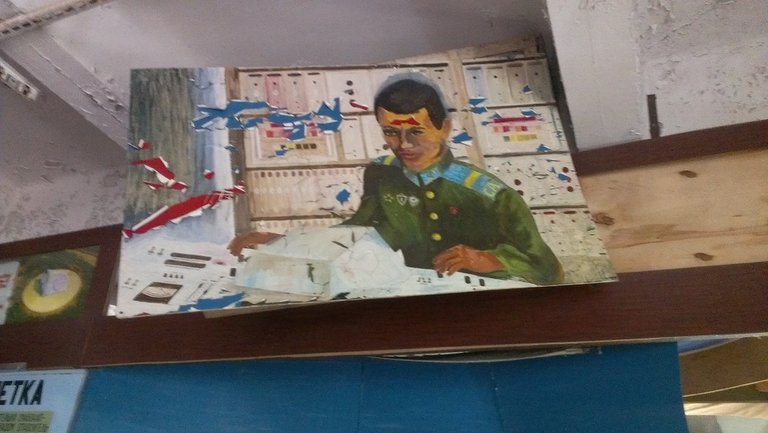
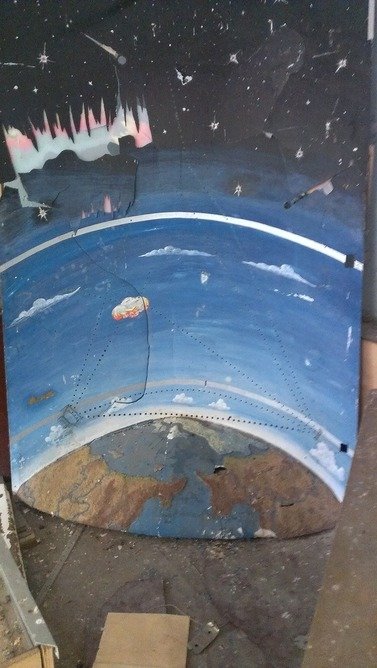
-------------------TO BE CONTINUED-------------------
Time to leave Duga-1 in its slumber. Hop back into the bus. In the upcoming Part III of our Chernobyl tour, we will visit what remains of a village called Kopachy in the second layer of the zone, where the nuclear impact was particularly severe. Be prepared for some gloomy pictures and please follow me, or else you'll be left alone in the zone! :)
Is it safe there now? Looks creepy anyway... Following you
Oh, check out Part I of the Chernobyl series, I have written a little about security and radiation risk there. :) There is a link to Part I in the first sentence of this article, by the way. And thanks for following!
Last time i heard there are animals living in the city now so it must be safe.
Eerily, melancholically beautiful. Aside from what I've seen online and television, this is the first time I hear about Chernobyl from a first person experience.
Excellent post!
Happy Sunday⭐️
Thanks, I'm always glad about positive feedback. Stay tuned for Part III. In Part IV, we are going to visit Pripyat, which is the main attraction, of course. :)
I will certainly stay posted! Thanks!
I am seriously jealous. Thanks for documenting your trip, I have always wanted to visit the Chernobyl NPP zone.
Well written once again! These photos are amazing, I hope it gets better and better from here on out.